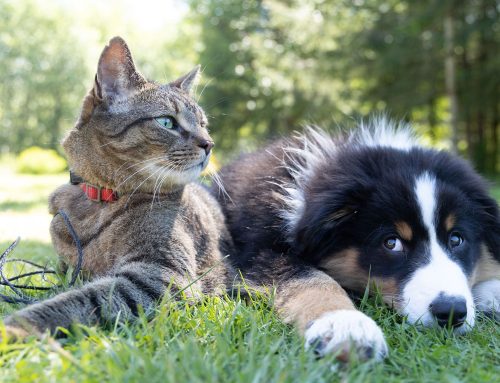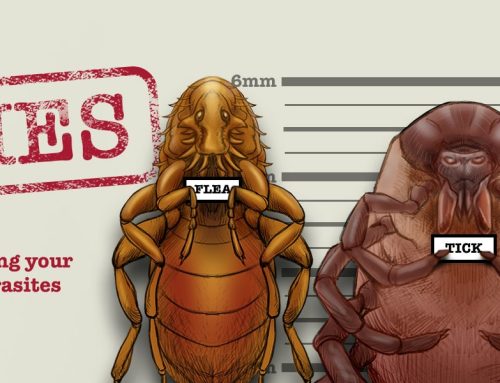What to Expect When your Dog’s Expecting?
Is your dog pregnant or has she gone into heat for the first time?
If you do wish to breed from your dog, here’s what to expect during the normal course of pregnancy and what to feed your pregnant bitch.
What is the normal heat cycle of female dogs?
Bitches first come onto heat from 6 months of age, usually at 9 or 10 months, and even later in large and giant breeds (up to 24 months). They cycle about every 6 to 8 months, although this can be extremely variable.
The first sign of heat is vaginal bleeding which lasts for 9 to 14 days, and ends when the bitch allows mating. Standing heat or oestrus lasts another 9 days or so. Vaginal discharge is still present and classically attains a straw colour at this point. The first few days of oestrus are considered to be the most fertile time of the cycle, so mating at this time is more likely to be successful.
A sample of vaginal cells can be examined to determine when is the best time to mate your bitch. A blood hormone test can also be administered.
What is the normal course of pregnancy?
Pregnancy lasts about 63-65 days (and ranges between 60 and 67 days). Pregnancy may be confirmed by palpation after 3 weeks, and becomes more reliable over time. Ultrasound is an accurate method of diagnosing pregnancy after 28 days.
During the last week or so of pregnancy, the bitch starts producing milk which can be expressed from the teats, and also starts looking for somewhere to give birth (whelp). It is a good idea to familiarise your dog with the whelping box, or wherever you want her to have her puppies.
The whelping box should be put in a quiet, private area, and should be large enough for the dog to move around freely, with low sides for easy access, but to stop the puppies rolling out. Line it with plenty of absorbent material such as newspaper, and remove soiled material.
What should I feed my pregnant dog?
Ensure a good quality, balanced diet is fed for optimal health. Your dog should be in a healthy, lean body condition during mating and the first two-thirds of her pregnancy. During the last trimester, gradually increase her intake up to 1½ times normal intake by the end of pregnancy, and up to treble normal intake during peak lactation (about 3 weeks after whelping).
If your dog won’t eat the increased amounts, try changing to a more calorie-dense, highly digestible diet. A premium adult energy diet or premium puppy food is suitable at this stage, or you can ask your veterinarian to recommend the best diet for your dog. Provide as much as your dog will eat in several smaller meals, as it is unlikely she will overeat at this time.
What else do I need to do?
Prior to mating, you should ensure your dog’s vaccinations are up to date. If your dog has not been vaccinated in the last six months, it is worthwhile getting them boosted to ensure the mum is able to pass her immunity to her puppies or kittens.
It is safer to have you pet vaccinated prior to mating but if you have neglected this, be sure to tell your vet your pet is pregnant because some vaccines should not be used in pregnant animals.
It is also a good idea to have you pet wormed prior to mating. Worming should also be undertaken six weeks into the pregnancy and should continue thereafter every two weeks until the puppies are weaned. This is to prevent roundworm infestations of the puppies. Roundworms that are lying dormant in the mother are often reactivated in the last trimester of pregnancy and are then passed onto the puppies or kittens. Worming during pregnancy will stop this problem.





